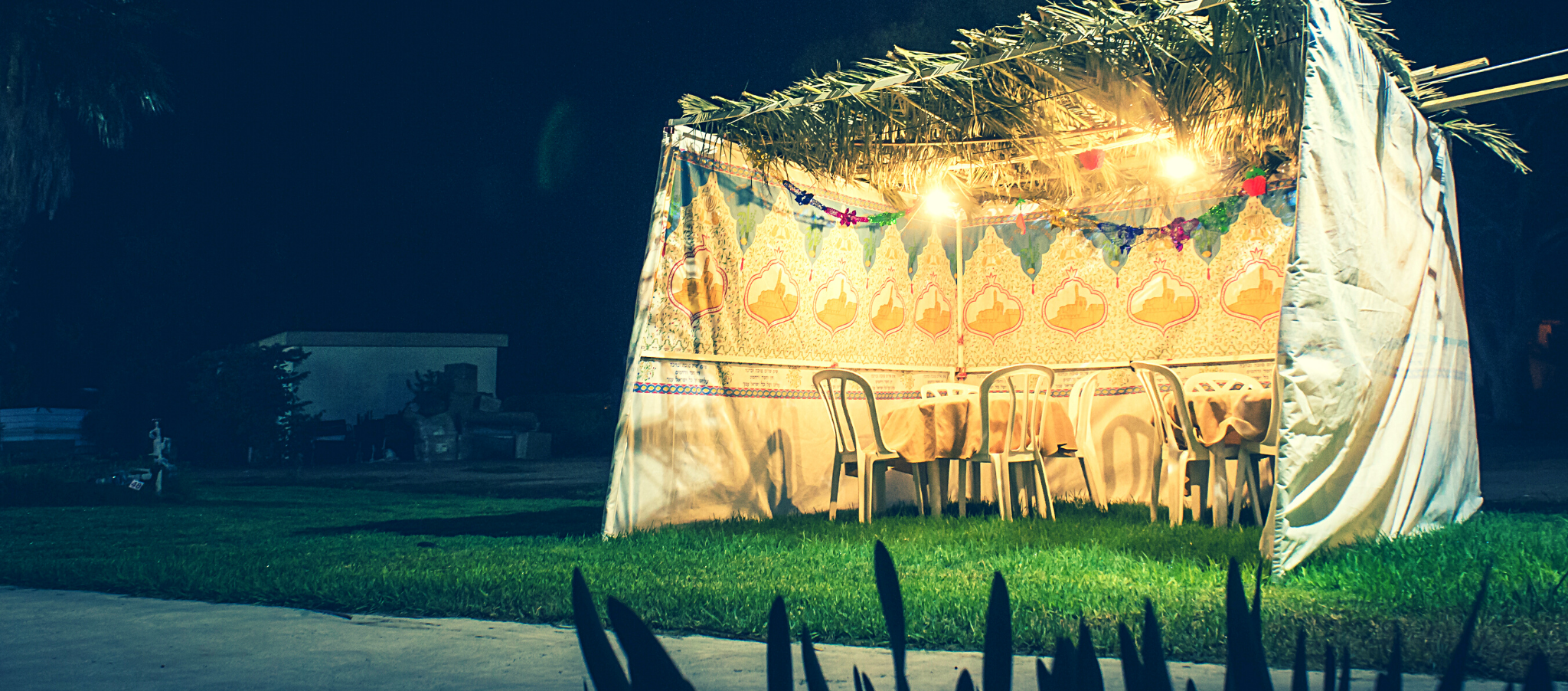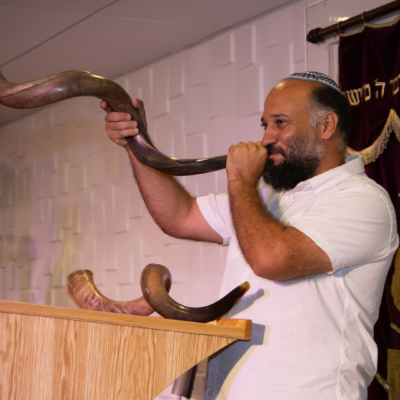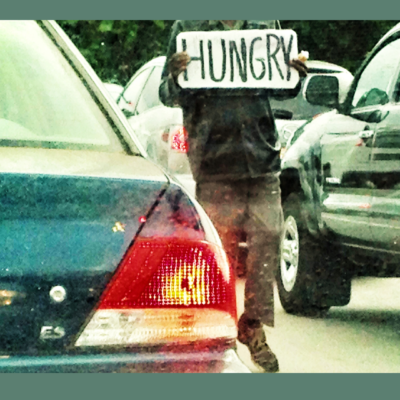We find ourselves at the end of the fall holidays celebrating Sukkot, the Feast of Tabernacles. Sukkot crowns the biblical holiday season because it is the last biblical holiday of the Hebrew calendar year. It is one of the three pilgrimage festivals (shalosh regalim) in the Hebrew Bible:
- Passover (Pesach)
- Weeks (Shavuot in Hebrew, Pentecost in Greek)
- Tabernacles (Sukkot)
On these festivals, the Bible commands the people of Israel to go up to the Temple Jerusalem in order to worship in the Temple. During these three festivals, the people of Israel were commanded to:
- Show themselves before the Lord in the Temple
- Bring offerings
- Rejoice before the Lord
Each of the three pilgrimage festivals of Passover, Weeks and Tabernacles has a three-fold meaning:
- Historical
- Agricultural
- Prophetic
The prophetic meaning of Passover and Weeks was fulfilled with the crucifixion and resurrection of the Messiah on Passover and the outpouring of the Holy Spirit on the festival of Weeks (Pentecost) which marked the beginning of preaching of the gospel of the kingdom from Jerusalem to the nations.
That leaves the feast of Sukkot, the third of the three fall feasts (Yom Teruah, Yom Kippur, Sukkot) which point to the culminating events of the end times. As the last of all the biblical holidays, Tabernacles deserves special attention. Let us delve into the special meaning of this holiday by looking at the three aspects of the pilgrimage holidays mentioned above: historical, agricultural, and prophetic
Tabernacles: Historical Aspect
“‘So beginning with the fifteenth day of the seventh month… Live in temporary shelters (sukkot) for seven days: All native-born Israelites are to live in such shelters so your descendants will know that I had the Israelites live in temporary shelters when I brought them out of Egypt. I am the Lord your God.’” (Leviticus 23: 39, 42-43)
For Jews, spending time in the sukkah we erect in our yards or apartment courtyards is supposed to remind us of the time we were completely dependent upon Him in the desert for our sustenance when we dwelled in sukkot—temporary dwellings.
The Desert Parable:
The desert is a harsh place for anyone to survive, let alone a whole nation with all its livestock. The Israelites found themselves in a situation when there were no “trappings of life” to lull them into thinking that they did not need God. If He did not provide for and protect them each day in a substantial, supernatural way, they would not survive. How easy it is for us to forget that we are completely and utterly dependent upon the goodness of God who “causes his sun to rise on the evil and the good, and sends rain on the righteous and the unrighteous”! Our comfortable modern lives allow us to think all that we have is by our own efforts alone.
Tabernacles Agricultural Aspect:
“Celebrate the Festival of Tabernacles for seven days after you have gathered the produce of your threshing floor and your winepress…For the Lord your God will bless you in all your harvest and in all the work of your hands, and your joy will be complete.” (Deuteronomy 16: 13, 15)
In the agricultural calendar, it is the final harvest, the ingathering. It is the end of the harvest season when people gather in the fruit of their labor in the fields before the winter rains come, starting the cycle over again.
The Agricultural Parable
For believers the symbolism is blaringly clear: this holiday signifies the final great harvest that will take place in the context of the end times tribulation:
“I looked, and there before me was a white cloud, and seated on the cloud was one like a son of man with a crown of gold on his head and a sharp sickle in his hand. Then another angel came out of the temple and called in a loud voice to him who was sitting on the cloud, “Take your sickle and reap, because the time to reap has come, for the harvest of the earth is ripe.” So he who was seated on the cloud swung his sickle over the earth, and the earth was harvested.” (Revelation 14: 14-16)
Tabernacles Prophetic Aspect
Right now the Spirit of God, the Shechinah—the manifest presence of God—dwells in the redeemed whom the Apostle Paul refers to as “tents” or sukkot. (2 Corinthians 5) Prophetic scripture reveals that the Lord Yeshua is returning to dwell or tabernacle among all people at the end of the great tribulation:
“’Sing and rejoice, O daughter of Zion! For behold, I am coming and I will dwell in your midst,’ says the Lord. ‘Many nations shall be joined to the Lord in that day, and they shall become My people. And I will dwell in your midst. Then you will know that the Lord of hosts has sent Me to you.’” (Zechariah 2:10-11)
Prophetic scripture describes how the Lord Yeshua will return at the culmination of the great tribulation, He will defeat the armies of the antichrist (Revelation 19), descend upon the Mount of Olives and enter into Jerusalem (Zechariah 12) at the invitation of the leaders there (Matthew 23:39), will be crowned king in Jerusalem and establish His kingdom here on earth for one-thousand years, His saints ruling and reigning together with Him. (Zechariah 14, Revelation 20)
Sukkot points to the ultimate fulfillment of the prayer Yeshua taught us, “Let Your kingdom come.”: Yeshua the Messiah Himself establishing His Kingdom here on earth, when every knee will bow and every tongue that Yeshua is Lord. The feast of Sukkot in the one feast that will continue to be of special significance in the Lord’s millennial kingdom for all the nations:
“And it shall come to pass that everyone who is left of all the nations which came against Jerusalem shall go up from year to year to worship the King, the Lord of hosts, and to keep the Feast of Tabernacles.” (Zechariah 14:16)
The Bible commands us three different times to rejoice during Sukkot: it is the holiday which crowns all the biblical holidays and points to the day when our Lord Yeshua will be crowned King in Jerusalem, and His Kingdom will fill the earth. That is truly a reason to rejoice!






jeffrey daly says:
oh this is a wonderful teaching ! THANK YOU dear brother Gil. God bless you in this beautiful season!